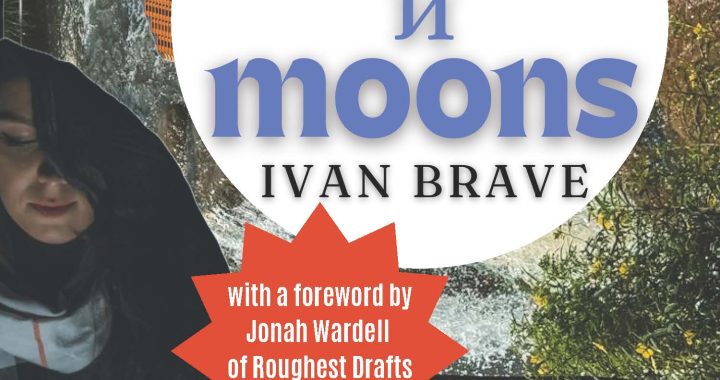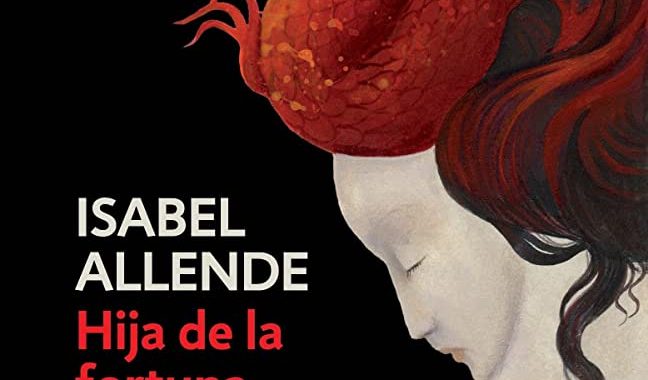To borrow from a professor of mine, about analyzing literature, you should do three things to understand and share your understanding of a work: 1. Quote it. 2. Comment on it. 3. Question it. With this formula, the QCQ, let us speak to this 2013 novel about a writer who descends into hallucinatory darkness, predilection for suicide, and early 21st century banality.
1. Quote.
Here are two sentences, at the end of a middle chapter:
“To Paul, who’d stayed mostly in his uncle’s sixteenth-floor apartment on previous visits, the vaguely tropical, consummating murmur of Taipei, from his parent’s fourteenth-floor apartment, had sounded immediately and distinctively familiar. The muffled roar of traffic, hazily embellished with beeps and honks and motorcycle engines and the occasional, looping, Doppler-effect jingle from a commercial or political vehicle, had been mnemonic enough (reminding Paul of the 10 to 15 percent of his life on the opposite side of Earth, with a recurring cast of characters and no school and a different language, almost fantastically unlike the other 85 to 90 percent in suburban Florida) for him to believe, on some level, that if a place existed where he could go to scramble some initial momentum, to disable a setting implemented before birth, or disrupt the out-of-control formation of some incomprehensible worldview, and allow a kind of settling, over time, to occur–like a spaceship that has exhausted its fuel and begun falling toward the nearest star, approaching what it wants at the rate it’s wanted, then easing into the prolonged, perfectly requited appreciation of an orbit–it would be here.”
You’ll understand in a second how this passage relates to the whole, as well as my purpose for citing it, once I comment.
2. Comment.
First, we clearly see Paul, the main character, the son of Taiwanese immigrants, turned New Yorker, in the full swing of his downward spiral, set to only get worse. Second, after some 150-pages by now, the protagonist has finally reached the titular city, Taipei, with his wife, in what becomes some of the most moving passages of the book. Third, the spiral/fractal/tolling-bell prose of the second sentence, so evolved and resounding, represents for me the novel’s strongest point: its ability to turn a boring drug-boy’s story into a page-turning tour de force. (I cringe for even writing this, but it’s true, and I’ll explain in a minute, after popping a little something-something.)
In plain words, this book will bore you like bad weed, but hook you like prescription pills. If we believe Neil DeGrasse Tyson when he says poetry makes us see the beauty in things overlooked, then I follow his line of argument (a line of cocaine) to state precisely that Lin’s poetry makes the ennui of an addict -> visceral, and therefore readable.
His seemingly ordinary prose does serve a purpose, however, it isn’t all cheese pizza: more like a layer of gritty cheddar, veiling something sinister, over a burnt pie crust made of sorrow and anti-bliss. Taipei the city becomes his final destination: the natural conclusion of a falling object. Meteors, paper planes, and lives; they all fall down. Paul is no exception. It is no spoiler to state he eventually does leave Taipei, does return to NYC for the second half of the book, but only as a ghost of himself, watching his body be high, and losing.
I remember a student of mine — a theater teacher for a prison in Barcelona, who works with crackheads and pederasts — telling me once that “addicts are indestructible,” like Monty Burns, full of diseases that fight each other to death, to keep their host alive, folks so impermeable to life’s throes after having injected vast quantities of deadly stuff, that they can no longer lead a normal life, yet can’t die. He specifically cited a gypsy named Balan with genital warts ringed around his asshole, who pisses in the public pool so inmates won’t get in with him; or otherwise blows them with his gummy toothless mouth; to pay for crack; or, if he can’t buy any, scratches the drywall of his cell to snort the dust that falls into the palm of his crusty hand.
We don’t see Lin’s Paul reach Balan’s circle of hell in the novel, but there is plenty of reason to believe he will, were the reader to imagine the story continue beyond its finish line. Here and there, Paul starts to shop lift for no reason (Nirvana CDs, for example), to fall face-first when exiting taxis in where he spent the last few minutes vomiting, or popping MDMA before performing a reading of his work-in-progress to a hundred college students all high like him. The law, I figure, will catch up eventually. Surely, his ennui in prison would achieve its finest apex: a fixed routine of life, finally and fully programmed, with drugs available, feeling safe and sound, and defeated for good.
3. Question.
All that said, let me ask, how the hell is this book so popular!? That’s my question. Put in less bitter terms, what I would like to know is what makes this book tick, what makes it good, beyond what I said above: there seems to be something elusive I can’t grasp. The feeling doesn’t intrigue me, it annoys me. And yet I am oddly pleased for having read Taipei. What kind of drug is it? What’s in the capsule? Meanwhile, let’s get real for a second. I am comparing this book to mine, but for a reason. And that’s a large part of my unease. Did I mention it got printed on Vintage Contemporary, my dream publisher?
Returning to my critique-y question, I quote a four-star Amazon review, out of 110 total reviews: “
Notice the frustration, the feeling of “why isn’t this better?” even though we praise. My book on the other hand only sees a trickle of his attention. (Oh, it feels good to press the pimple of my envy.) ((“Oh, said Paul, unsure if he was confused.”)) (((Oh, said Ivan, finally feeling the effects of the something-something he swallowed; a pill called acceptance.)))
How did I come across this book? My roommate recommended it. He had finished reading my book and he told me, “You have to read Taipei, it’s similar to your book, only it approaches your same youth/drug theme in a completely different way.” Something about my style being explosive, while Lin’s is dead pan. Do you see now why I’m comparing?
We both, also, deal in immigrant experiences, only he doesn’t deliver any Mandarin on the page. He says he uses the word “baby” but I never learn what that is! “Because his Mandarin wasn’t fluent enough for conversations with strangers–and he wasn’t close to his relatives, with whom attempts at communication were brief and non-advancing and often koan-like, ending usually with one person looking away, ostensibly for assistance, then leaving–he’d be preemptively estranged, secretly unfriendable.” What the hell! This is a diamond of a sutra, a spectacular line, and on page 15, which made me nose-dive into his vortex to finish reading the book, all the while thinking, damn, how does he write like that? Thought it could have been done better <face twitches>.
Follow the chain of recommendations: why did my roommate pick up the book? He had read a top-rated review on Goodreads, written by the woman (allegedly) who in real life inspired Lin’s wife character. Here are some select passages from the review, typos and all, originally four times as long:
“Allow me to inteoduce my review: The past few times I’ve been on Molly or ecstasy I’ve wanted to review Taipei because I remember Tao encouraging people to review this book while peaking on MDMA or adderall
“I am peaking on ecstasy in a bathtub at a friend’s house)
“Shit I forget it completely right now
“There was a draft I read where monkfish was focused on more than in the final book I think
“Taipei
“I’m now accessing ‘time period when I think the things in Taipei happened’ and it feels very far away but beautiful and twinkly like a distant parade or sound of an ice cream truck
“If Taipei was a food it would be a Bartlett pear
“Yeah
“EAHEHATHAYEHAHAYYAHAH
“Chewed gum faster when I thought about how it’s my favorite
“Someone asked if I was still in the bath
“What else can I say about Taipei
“THE SHINY COVER
“THINK ABOUT THE SHININESS
“WOULD BE GOOD IF THEY HAD MADE SCRATCH AND SNIFF STYLE PAGES SO YOU COULD BE ON THE DRUGS THE CHARACTERS WERE ON ON WHATEVER PAGE YOU’RE ON
“THANK YOU FOR YOUR TIME AND CPNSIDERATOON IT IS TIME FOR ME TO LEAVE THE BATHTUB NOW IT IS VERY OBVIOUS BY NOW”
Dude, who wouldn’t read this book. It’s worth it. Even if Bret Easton Ellis calls Lin and not me “the most interesting prose stylist of his generation.” I can swallow my pride. Like, that’ll definitely get me high, right? In the mean time, don’t be mean. Don’t be jealous. (Talking to myself now.) But allow the voice inside that wants to praise to praise. (Talking to you, reader, now.) Read the book, then read The Summer Abroad and compare and contrast along with me:)
EDIT: I only mustered the courage to write the final section of this post after having read a certain Dr Jacques Coulardeau’s review of my book, available to scramble your brain on this clickable link.




